From fellowships to a staffing and development platform, the newcomer supports writers with disabilities in myriad ways.
1/23/2026 • Evan Henerson
His Name is Reo and He Can Spin a Tale
2026 TV Laurel Award Honoree Don Reo reflects on his career.
From fellowships to a staffing and development platform, the newcomer supports writers with disabilities in myriad ways.
For seven years, before she identified as a person with a disability herself, Inevitable Foundation Co-founder Marisa Torelli-Pedevska lived and worked at a summer camp for teens and adults with a wide range of developmental disabilities. “Being in a space where the majority of the people around me were disabled made me think of the onscreen piece of it,” she recalls. “I’m not seeing these people onscreen in movies and shows. They’re not represented anywhere else.”
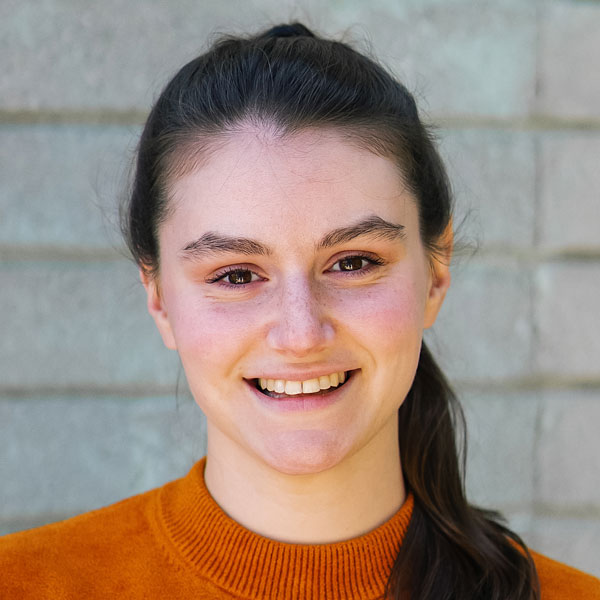 Inevitable Foundation Co-Founder Marisa Torelli-Padevska. Photo by A Klass
Inevitable Foundation Co-Founder Marisa Torelli-Padevska. Photo by A KlassYears later, about to graduate with an MFA in screenwriting from USC, Torelli-Pedevska considered the industry she was entering. With a physical disability and chronic illnesses that limit her mobility, “I was thinking, ‘What is this going to look like in an industry that, from what I’m seeing, doesn’t seem super accessible, or accommodating, and that really values who works the longest hours?’”
She met fellow co-founder Richie Siegel when his sister was a camper in Torelli-Pedevska’s cabin at camp. Initially a producer, then working as a consultant, Siegel wanted to find more mission-driven work. When the two of them came up with the idea for Inevitable Foundation, their mission was to invest in disabled writers and filmmakers to help them achieve artistic and financial freedom and use film and television to destigmatize disability and mental health globally.
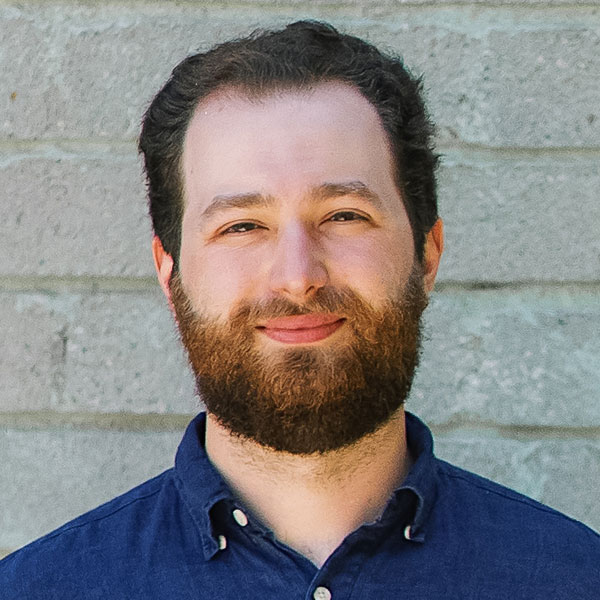
“Disabled people are 20 percent of the population of the U.S., less than one percent of the writers, and only two percent of the characters onscreen,” Siegel says. “The only way we will solve that is by focusing on the storytellers. We can’t just solve this with casting, and that was what a lot of the interventions we’d seen up until that point were focusing on.”
They co-founded the nonprofit January 1, 2021, and reached out to David Radcliff, co-chair of WGAW’s Disabled Writers Committee, to discuss what was needed. “I have cerebral palsy, and they wanted to talk to someone who could give them the lay of the land of what the challenges are for disabled writers and for breaking in and staying in, and getting paid work vs. getting consultancy work,” says Radcliff, who advises the Foundation. Radcliff helped develop The “Cost” of Accommodations Report, which, as the site describes, “provides a roadmap for disabled talent and producers to make a more accessible and equitable working environment.”
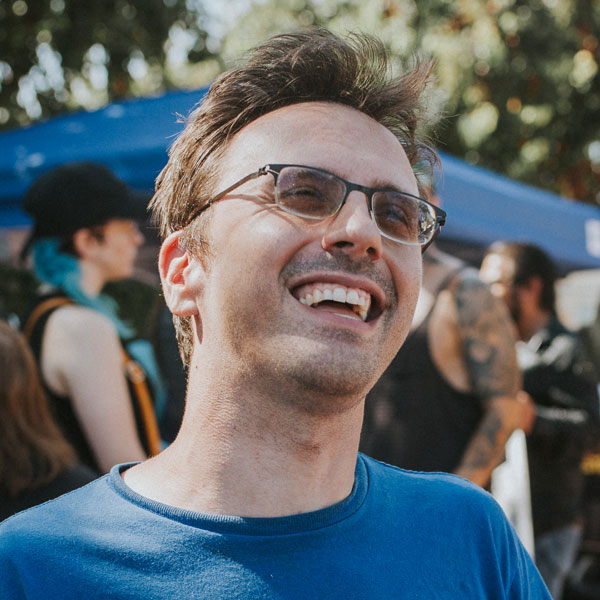
Inevitable’s initial offering was the now-named Accelerate Fellowship; WGAW members Kalen Feeney and Shani Am. Moore were the first two grantees. “Some fellowships, they give you the money, or the space, and you do your own self-guided work, but with Inevitable Foundation, they are full hands on deck,” says Feeney, who is deaf. “We had weekly check-ins with Richie and Marisa, and weekly writers’ meetings on our projects. I felt like I was so supported the whole way. If an opportunity arose in the industry, I could ask them, ‘How do I approach this?’” With Inevitable’s guidance, Feeney landed her first staff writing job.
Looking to help mid-tier writers, Inevitable then created the Elevate Collective, giving smaller grants to a larger number of participants. Disabled Writers Committee co-chair Shea Mirzai is a member of the 2024 cohort. “What’s super good about that is it came with a $5,000 grant that I’ve been able to use to fund further development of my own projects, and also to pay for a bunch of brand-new, top-of-the-line equipment,” says Mirzai. “I now have a laptop from the future, and a new iPad. It’s been a huge source of support.” He’s been working in the industry for 16 years, “and just to see that I’m not the only disabled person who’s making it in this town, I would never have fathomed that, honestly.”
When Inevitable Foundation came on the scene, “it really marked a perceived shift, where being a person with a disability was becoming—not more accepted, but more of us were willing to have that fight,” Mirzai says.

Just to see that I’m not the only disabled person who’s making it in this town, I would never have fathomed that, honestly.
- Shea Mirzai
“I remember that it was harder for me to publicly acknowledge having a speech disability than it was to publicly acknowledge being a gay man,” he continues. “We seem to pay more of a price when we publicly acknowledge who we are. We’re very aware we can get the job done. We have to fight the stigmas that we can’t. I’ve lost jobs where they read my sample, and loved it, they look at my resume, they’re knocked out by it, and then after they meet me, it’s like, ‘Oh, Shea has a stutter.’”
Inevitable then created Concierge, to help disabled creatives expand their networks. “Now you’re able to push your samples, features, or pilots up on their website, with a full profile on yourself, and they do their best, when they hear about new staffing opportunities, to make sure that they can connect you should you fit a need, which I think is a huge step,” Mirzai notes.
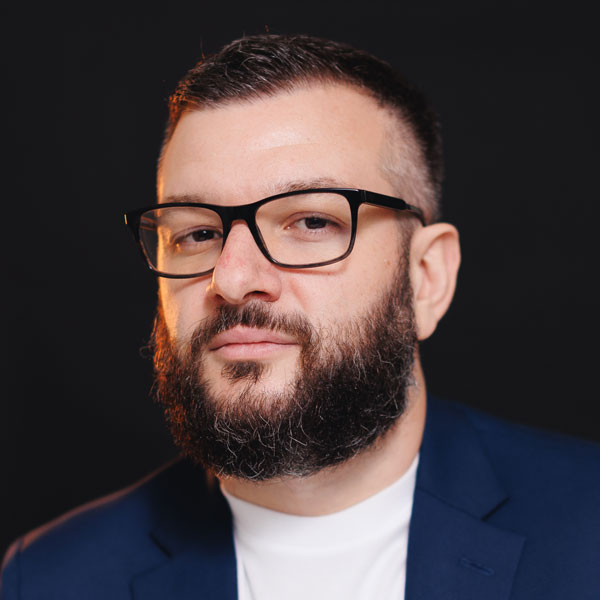
Says Siegel, “I’ll half-jokingly call it a lit agency without a business model, but we’re not agents or managers.” The Concierge is free to use. “It’s totally about how do we get more disabled creatives meetings, taking generals, getting shots on goal for hiring, for staffing, and knowing the more the relationships get built, the more success will come from it.”
The Foundation also hosts weekly “writers’ therapy” Zoom meetings, where working creatives speak to the fellows and answer questions. “It’s a great way to be connected to the fellows and continue to build a strong community of writers,” says Feeney.
Community might be Inevitable’s most important feature. “I’ve been the only visibly disabled writer on every show I’ve written on,” says Radcliff. “I’m very often the only visibly disabled person in industry-related meetings, so even in those spaces it can get kind of lonely. Being able to work with and guide some of the fellows with a range of disabilities and a range of different types of projects, and form relationships and friendships there, has been really valuable.”
At grad school, Torelli-Pedevska heard “a lot of talk around DEI and inclusion and race and gender and sexuality, and I was never hearing about disability, and I thought it was so confusing, because disabled people have races and genders and sexualities, they don’t exist in this little vacuum of just being disabled.” Using an all-disabled creative team, they produced the Disability is Diversity campaign.
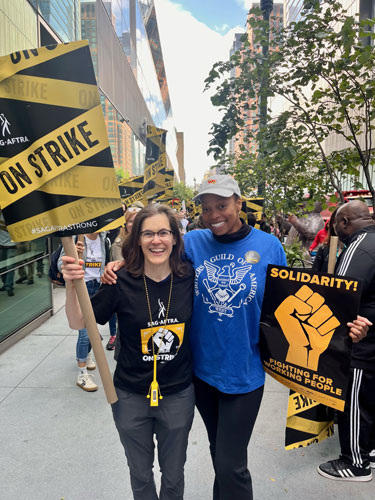
Their Hire Disabled Writers initiative is a particularly important issue to Radcliff. “The efforts to include disabled people in the industry often begin and end with making us consultants, and sometimes that results in you just getting paid a few hundred bucks to come in and tell very personal stories, and then you’re not credited as a writer. You’re brought on for maybe a day,” he says. “As someone who’s been a staff writer and also been a consultant, it’s so important to be part of the writing team because the process of writing something is long, so it’s better to be in there from beginning to end, rather than to be called in at the end as a consultant and just rubber stamp something that’s decided upon. That’s a really uncomfortable position for disabled people to be in.”
During the 2023 WGA and SAG-AFTRA strikes, Inevitable gave out emergency relief grants, and supported the Disabled Writers Committee’s pickets. “They were out there with us,” Mirzai says. “They brought us things that would help us beat the heat, water stations where people could rest, and cooling towels. They made a visceral point to be on the side of screenwriters with disabilities fighting the good fight.”
Since they began, the Foundation has disbursed $750,000 in grants to disabled writers in the last three and a half years. Says Siegel, “It’s expanded very rapidly, mostly driven by the demand and the need and frankly, just how much time there is to make up for, arguably decades, of this work not being done to level with the vigor that it needs to.”
The ultimate goal of Inevitable is to implode. “We didn’t set out to build a nonprofit that keeps going for years and years,” Torelli-Pedevska says. “The goal is, let’s fix the problem so we can literally self-destruct when no one needs us anymore.”